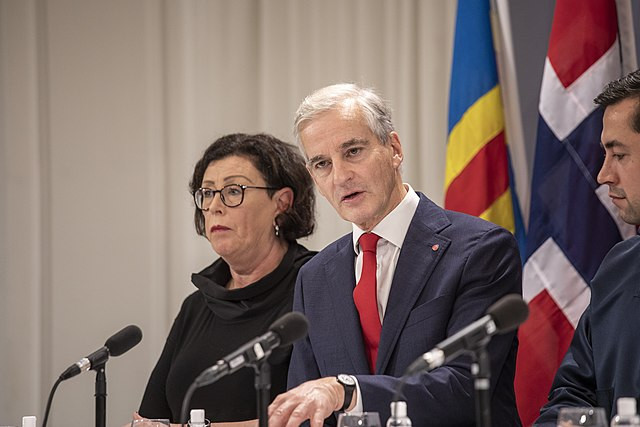Norway, Ireland, and Spain announced on Wednesday they will formally recognize a Palestinian state, further isolating Israel amid its ongoing war against Hamas in Gaza. The move, which is largely symbolic but carries historic weight, has drawn swift condemnation from Israel and praise from Palestinians.
The announcements come more than seven months into the grinding conflict, which has claimed the lives of over 35,000 Palestinians, according to Gaza's Health Ministry. The war began on October 7 when Hamas-led militants launched an attack, killing 1,200 people and taking some 250 hostages. Israel's ensuing offensive has been met with increasing international criticism, and the recognition of Palestinian statehood by the three European nations is seen as a response to Israel's actions in Gaza.
Norwegian Prime Minister Jonas Gahr Støre, whose country helped broker the Oslo accords in the 1990s, emphasized the importance of the decision, stating, "Two states, living side by side, in peace and security." Irish Prime Minister Simon Harris echoed this sentiment, expressing hope that the recognition would "offer hope and encouragement to the people of Palestine at one of their darkest hours."
Israel, however, views the move as a reward for Hamas' actions. Foreign Minister Israel Katz accused Ireland and Norway of sending a message that "terrorism pays" and suggested that the recognition could impede efforts to return Israeli hostages held in Gaza and make a cease-fire less likely.
The announcements follow a series of diplomatic setbacks for Israel, including the International Criminal Court chief prosecutor's decision to seek arrest warrants for Israeli Prime Minister Benjamin Netanyahu and his defense minister, as well as Hamas leaders, for alleged war crimes. The International Court of Justice is also considering allegations of genocide, which Israel has strenuously denied.
In response to the European nations' decision, Israel recalled its ambassadors to Norway and Ireland and plans to do the same for Spain. Far-right National Security Minister Itamar Ben-Gvir also made a provocative visit to the Al-Aqsa mosque compound, a flashpoint site sacred to both Muslims and Jews, further escalating tensions in the region.
Palestinian Authority President Mahmoud Abbas welcomed the recognition, calling on other nations to "recognize our legitimate rights and support the struggle of our people for liberation and independence." Hamas also praised the move as "an important step on the path to establishing our right to our land."
Despite the recognition, the announcements are unlikely to have an immediate impact on the war in Gaza or the long-running conflict between Israel and the Palestinians. Israel has annexed East Jerusalem and built numerous settlements in the occupied West Bank, home to over 500,000 Israelis. Meanwhile, the 3 million Palestinians in the West Bank live under seemingly open-ended Israeli military rule.
Experts suggest that for the recognition to have a tangible impact, it must be accompanied by concrete steps to counter Israel's annexation and settlement of Palestinian territory. Norwegian Foreign Minister Espen Barth Eide defended the timing of the recognition, stating that while Norway has supported the establishment of a Palestinian state for decades, it now realizes that "recognition should come as an impetus, as a strengthening of a process."




